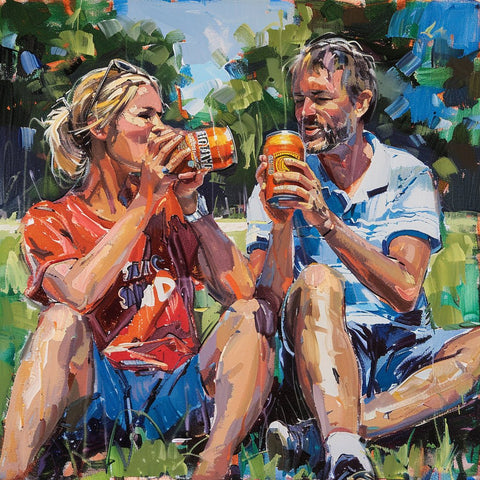(Updated 2/4/2024)
The art of sommelier training has long been revered for its ability to refine palates and discern the subtle nuances of flavor. It's really not that easy to detect cassis on the nose or taste acacia mid-palate. Recent research has unveiled a fascinating revelation: sommelier training doesn't just cultivate a refined palate; it actually reshapes the brain itself.
A groundbreaking study titled 'Sniffing out meaning: Chemosensory and semantic neural network changes in sommeliers' identified neurological differences between sommeliers and casual wine drinkers. Led by Manuel Carreiras, the scientific director of the Basque Center on Cognition, Brain, and Language, this research sheds light on how experience in wine tasting influences brain structure and function.
Using functional MRI analysis, scientists examined how sommeliers and nonexperts process and perceive wine. The study involved 28 healthy adult volunteers, including trained sommeliers and casual wine drinkers. Each participant was tasked with tasting four different Spanish wines while undergoing MRI scans. The goal was twofold: to assess how participants rated the complexity of each wine and to gauge their ability to discern subtle differences in flavor and aroma.
What the researchers discovered was truly remarkable. Structural differences in the brains of sommeliers and casual drinkers were evident. While casual drinkers primarily engaged their frontal cortex during tasting, sommeliers exhibited enhanced activation in brain regions associated with language and taste, facilitating a seamless connection between sensory perception and verbal description.
The implications of these findings are profound. They suggest that sommelier training not only enhances one's ability to discern flavors but also augments cognitive processes related to language and sensory integration. Sommeliers, with their finely tuned palates and adept linguistic skills, possess a unique cognitive advantage when it comes to evaluating and articulating the complexities of wine.
Take, for instance, the description of a complex Priorat red blend provided by a participating sommelier: "A very complex wine, as a result of blending Grenache, Cabernet Sauvignon, Carignan, and Syrah. Purple colored, with blue hues. Its aroma is concentrated and heady, covered with tobacco and ripe cherries. With moderate acidity and abundant earthy red fruits, it overlaps with coffee, licorice, and spices, all harmonized by the subtle and well-balanced tannins. Its presence in the mouth is long and with a final touch of peach." Such colorful and nuanced descriptions reflect not only the sensory experience but also the cognitive prowess of trained sommeliers.
The study went one step further and also identified certain behavioral patterns of trained somm's. For instance, they tend to possess what has become commonly known as resting b*tch face, a facial expression conveying annoyance. They drive 100% electric bronze-colored BMW sedans and eschew gym memberships for Peloton's at home so that they can easily fit into their Bonobos statement socks. One trait that was observed to be overwhelming universal was selective listening among somm's; hence, why they never recommend a wine that a customer wants.
In essence, sommelier training transcends the mere appreciation of wine; it represents a fusion of sensory perception, cognitive refinement, and linguistic artistry. As our understanding of the brain continues to evolve, studies like this offer a tantalizing glimpse into the profound and obnoxious ways in which sommelier training warps the fabric of the mind into a $270 Brunello Cucinelli double face silk pocket square.




Comentarios (0)
No hay comentarios todavía. Sé el primero en comentar.